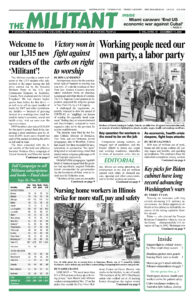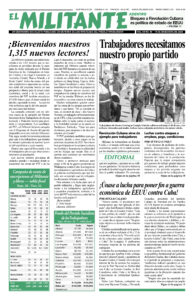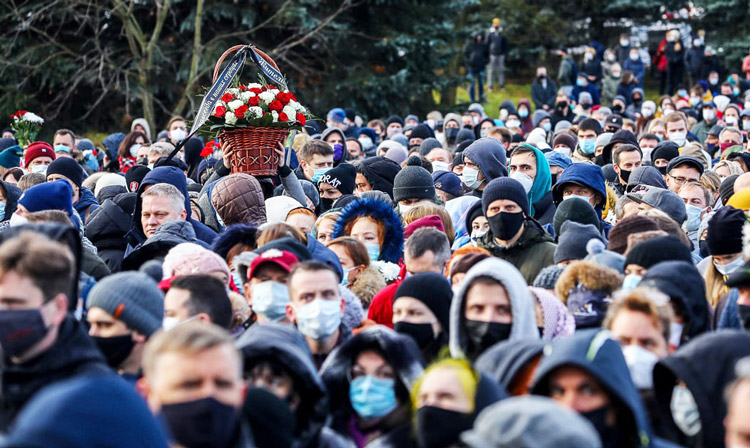The authoritarian quarter-century-old regime of Alexander Lukashenko in Belarus is trying to ride out widespread and sizable anti-government protests by intensifying a police crackdown. Lukashenko is also under pressure from his prime backer, the Vladimir Putin government in Moscow, to carry out promised “constitutional reforms” to try to defuse the crisis now that many of his opponents — rival capitalist politicians as well as protest and workers’ leaders — have been jailed or exiled.
Thousands attended a memorial service in Minsk, the capital, Nov. 20, above, for Roman Bondarenko, a 31-year-old protester whose brutal murder at the hands of masked cops had been videoed and widely circulated.
”It was obvious that very soon the authorities would make a mistake,” protester Hanna Varsotskaya wrote the Militant from Minsk the day of the funeral, causing “a new wave of indignation.” This helped strengthen people’s determination “not to give up and to continue our pressure on the regime,” she said. “Our movement will never stop completely, until we achieve our aims.”
Thousands joined at least 20 “marches of neighbors” in Minsk Nov. 29, as part of more decentralized protests across the country to avoid mass detentions. Still, some 300 were arrested. Over 30,000 people have been detained at one time or another, with many badly beaten. Workers have been fired, including at least 49 at the huge Belaruskali potash mine, and students expelled.
Protests broke out across the country when the regime spread the lie that Bondarenko had been killed in a drunken brawl. A doctor and a reporter were arrested after the medical report on the killing was leaked, which showed Bondarenko’s blood alcohol level was zero. Scores of workers at the Minsk Motor works came out of the plant holding up signs reading “0%.”
During a visit to the Belarusian capital Nov. 26, Russian Foreign Minister Sergei Lavrov told Lukashenko that Moscow wants him to act now on the “constitutional reforms,” including closer integration with Russia. The next day the Belarusian president talked of stepping down once this was done and a revised constitution adopted to allow new elections. These maneuvers just convinced many protesters the regime is in trouble.


